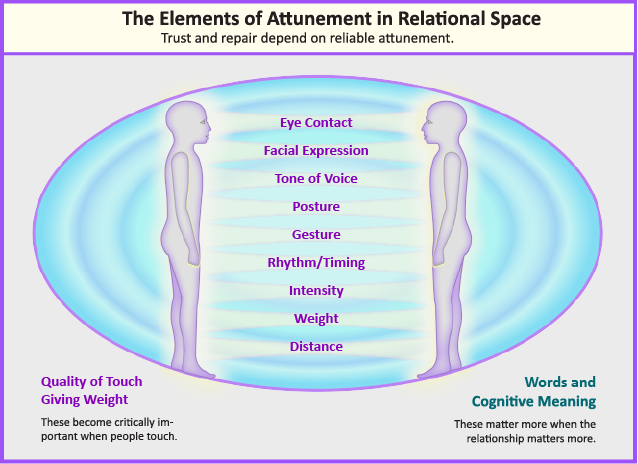I was very skeptical when I first did a therapy session over the phone (in 2010). Much to my surprise, it was, and has been, effective even in my practice of somatic psychotherapy. Somatics, having to do with the body, its sensation and expression, brings to mind in-person therapy, with all the non-verbal information and communication that is available, such as facial expression, body language, maybe touch work. Whether for therapeutic relating or social relating, we tend to elevate in-person connection over remote (phone or video) connection. I now have a much more nuanced approach to this evaluation, and new respect for the benefits of remote sessions.
Over the phone, my job can be harder because I have no visual cues from the client. Yet, this challenge brings substantial gifts, to the client and to myself as a practitioner! The following perspectives shape my approach to phone sessions.
First: I have to check my assumptions – frequently and unapologetically. A pause, a tone of voice, the pace of speech, a slow inhale, may mean one thing … or another. In the office, I read these in conjunction with physical gesture, facial expression, eye contact, and body tone, and assume I know what they mean, as one does naturally, in social life. Yet, our assumptions are often inaccurate and go unchecked. This is especially true with sensitive clients who have spent a lifetime learning to hide their vulnerability. Working over the phone means that I frequently check my assumptions and ask clients how they are feeling, and what is going on, because I do not expect myself to be accurate in reading them. Client and therapist benefit from this emphasis on checking assumptions, moving towards a mutual, accurate understanding.
And, gift number two: my clients get better at noticing, articulating and reporting their emotional experience. This is very good for building an observing ego and for learning to name and share emotions. Strengthening these self-reflective and self-expressive practices builds essential relationship skills.
Third, clients often need to correct me, which is highly empowering for them. While I am the trained professional, I am never the expert on their experience. Each one knows his/herself and her/his life best, and we want them to take that authority. Checking my assumptions out loud with them, gives them the space to articulate their reality to a willing and compassionate listener, especially when I am wrong. This simple exchange is empowering and healing. The more their articulate, responsible adult is in the room, the better therapy goes and the easier it is for me, as therapist.
A fourth benefit is a reduced fear of physical intrusion. No client has ever hung up on me during a phone session, but they could, and I encourage them to notice that and do it if need be! The power to engage and disengage is completely and literally in their hands, with the click of the phone button. For trauma survivors, this can serve as a very effective physical boundary. This level of safety can offer a neurological sense of relaxation that people may not even know they were missing.
The fifth benefit may be the most important. On the phone, clients only need to devote attention to one external sensory channel: hearing. This gives hypervigilant and sensitive or overstimulated clients a great deal more bandwidth for paying attention to their own internal thoughts, feelings and sensations.
Most trauma clients, highly sensitive people and especially empaths, are chronically stressed by too much stimulation and a sense of threat when around other people. Their nervous systems are defensive and reactive to a neuroception of threat, even when they consciously believe, and think they are safe. These folks are often so hypervigilant about their social and physical environment, that they barely notice their own internal reality. Phone sessions offer connection and therapeutic relationship with reduced external stimulation and threat. Conversely, some clients who suffered early neglect, high functioning clients, who thrive on lots of complex interaction, or clients with early trauma who need touch work, tend to feel unsatisfied with phone sessions.
On phone sessions, when I am attentive to reality checking my assumptions, the process cultivates empowerment quickly and makes my job as therapist easier. Many trauma clients and highly sensitive people can be more present to themselves and more available for our work together on the phone than during an office visit.
